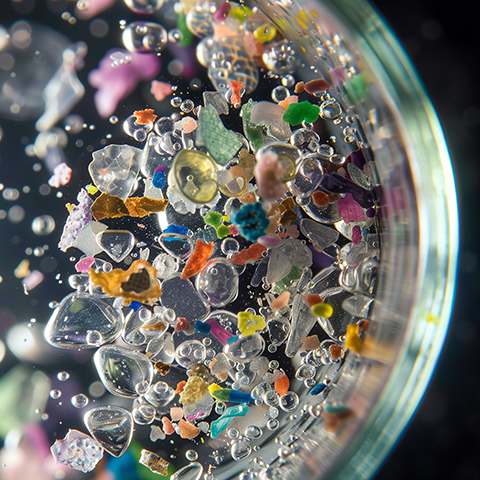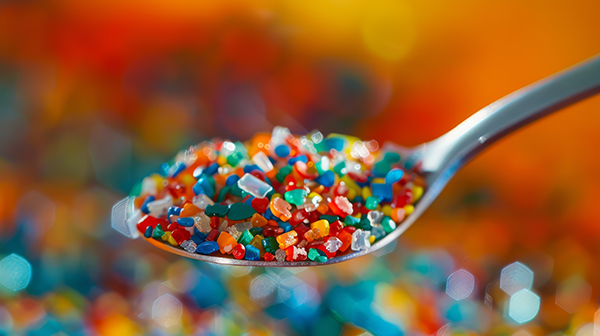The Hidden Dangers of Microplastics
How Microplastics Affect Your Skin Health
Discover the unseen threats that microplastics pose to your skin, and learn how to protect yourself from their harmful effects.
Understanding Microplastics
The Impact of Microplastics on Aging Skin
Microplastics are tiny plastic particles that have become pervasive in our environment. Recent studies have shown that these particles can penetrate the skin barrier, leading to inflammation, oxidative stress, and accelerated aging. For older women and men, this is particularly concerning as the skin’s natural defenses weaken with age. It’s crucial to be aware of the sources of microplastics, such as cosmetics and polluted air, and take steps to minimize exposure.
At our MedSpa, we offer specialized treatments designed to combat the effects of microplastics on the skin. Our advanced skincare solutions help to detoxify, rejuvenate, and protect your skin, ensuring you maintain a youthful and healthy appearance.
Book Your FREE Consultation Today
Ready to take control of your skin health? Schedule a consultation with our skincare experts to learn more about how we can help you combat the effects of microplastics. Our personalized approach ensures that you receive the best treatment tailored to your unique needs.
Written By Emily Andros
Living a microplastic-free life is crucial for human health due to several significant factors:
Ingestion and Accumulation in the Body
- Contaminated Food and Water: Microplastics are increasingly found in food and beverages. They have been detected in seafood, bottled water, table salt, and even beer. Consuming these contaminated products leads to the ingestion of microplastics.
- Bioaccumulation: Microplastics can accumulate in the human body over time. Once ingested, they may remain in the gastrointestinal tract, potentially causing inflammation and other health issues.
Chemical Exposure
- Toxic Substances: Microplastics can absorb harmful chemicals from the environment, such as pesticides, heavy metals, and persistent organic pollutants. When ingested, these chemicals can leach out, leading to various health risks.
- Endocrine Disruption: Some chemicals associated with microplastics are known endocrine disruptors, which can interfere with hormone systems and lead to reproductive, developmental, and immune problems.
Physical Health Risks
- Inflammation and Toxicity: Microplastics can cause physical damage to tissues, leading to inflammation. They can also generate reactive oxygen species (ROS), causing oxidative stress and cellular damage.
- Digestive System Impact: The presence of microplastics in the gastrointestinal tract can interfere with the digestive process, potentially causing irritation, reduced nutrient absorption, and other digestive issues.
Respiratory Health
- Inhalation of Microplastics: Microplastics are not only present in food and water but also in the air. Inhalation of microplastic fibers and particles can lead to respiratory issues, including lung inflammation and reduced lung function.
- Respiratory Diseases: Continuous exposure to airborne microplastics may contribute to the development or exacerbation of respiratory diseases such as asthma and chronic obstructive pulmonary disease (COPD).
Potential Long-Term Health Effects
- Carcinogenic Risks: Some studies suggest that long-term exposure to certain types of microplastics may increase the risk of cancer due to the chemicals they carry and their potential to cause cellular damage.
- Unknown Health Consequences: The full extent of the health impacts of microplastics is still being studied. However, the potential for unknown long-term consequences makes it prudent to minimize exposure as much as possible.
What can we do to reduce the micro-plastics in our lives?
- Reduce Plastic Use: Minimize the use of single-use plastics and opt for alternatives like glass, stainless steel, or biodegradable materials.
- Filter Water: Use water filters capable of removing microplastics to reduce their presence in drinking water.
- Avoid Processed Foods: Processed and packaged foods are more likely to contain microplastics. Choosing fresh, whole foods can reduce exposure.
- Advocate for Change: Support regulations and initiatives aimed at reducing plastic pollution and promoting sustainable practices.
Reducing microplastic exposure is essential for protecting human health, preventing potential long-term health risks, and ensuring a cleaner, safer environment. Reach out to DrTen20 for a complimemtary appointment with Dr. Adrian de la Torre today!.



